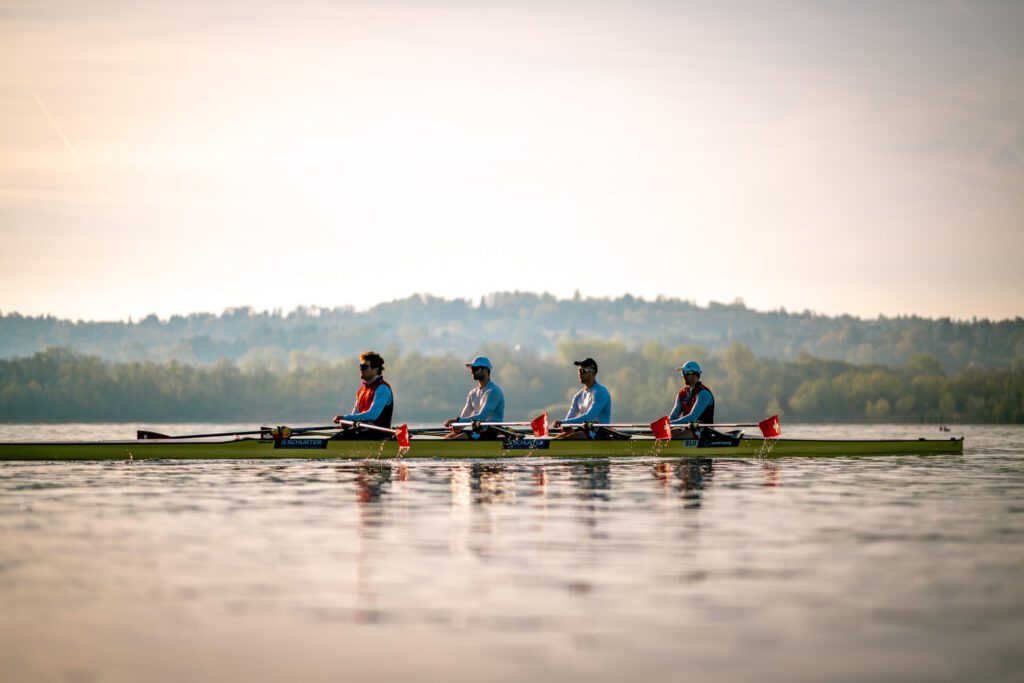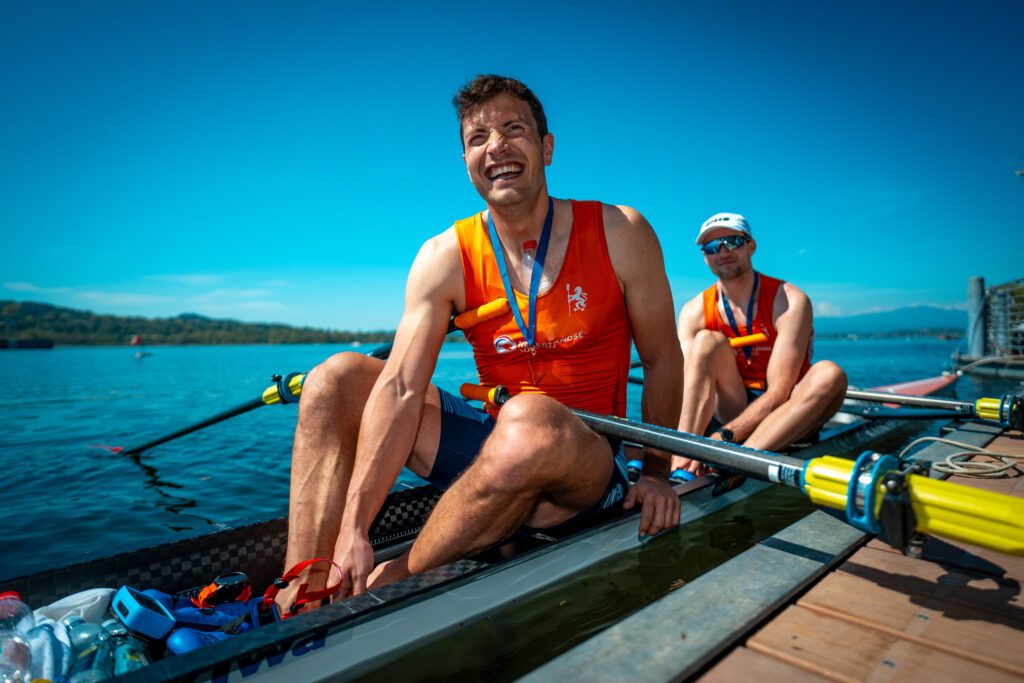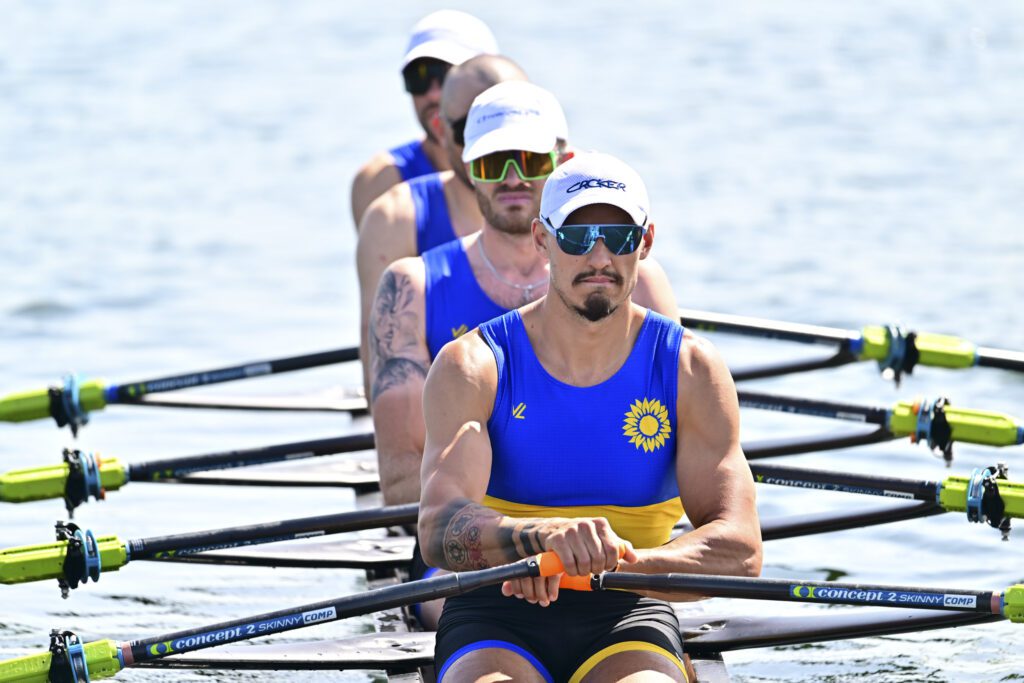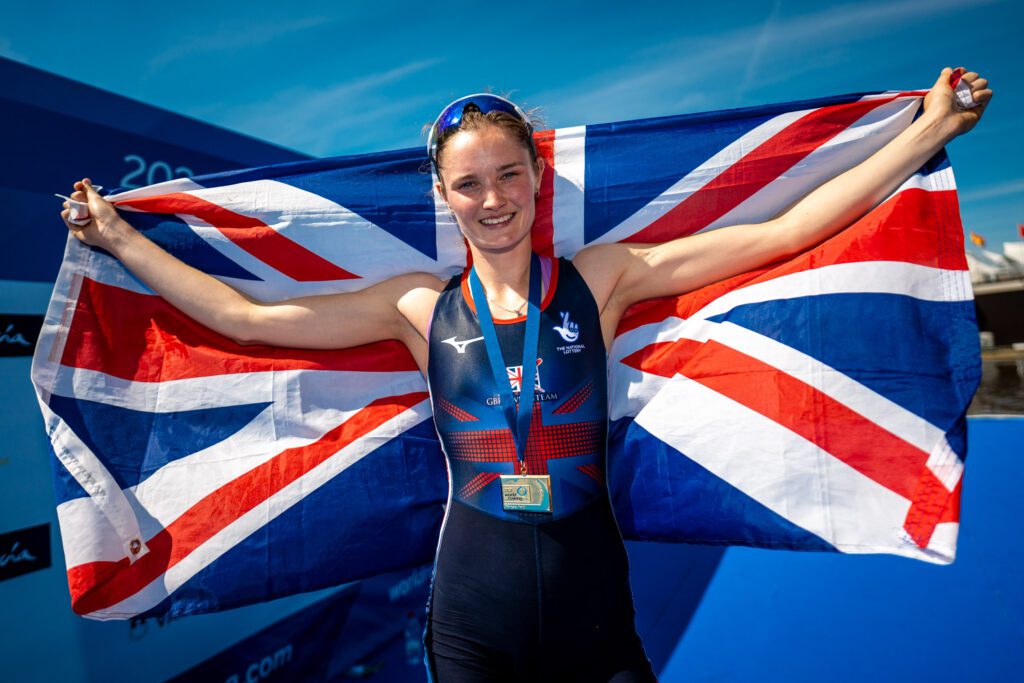It’s a strange experience watching the Paralympics from home after having been at the Olympics. Seeing the Sea Forest Waterway pop up on my computer screen brought my body temperature up in sympathy with those baking in the hot humid conditions of Tokyo, particularly the officials, press and volunteers who don’t often have much chance of getting in the shade. When the clouds come over the Games venue it’s like a nice summer’s day in the UK, but under the blue skies of Friday’s opening heats everyone will have been baking. No wonder ice vests, umbrellas and frozen towels were the order of the day.
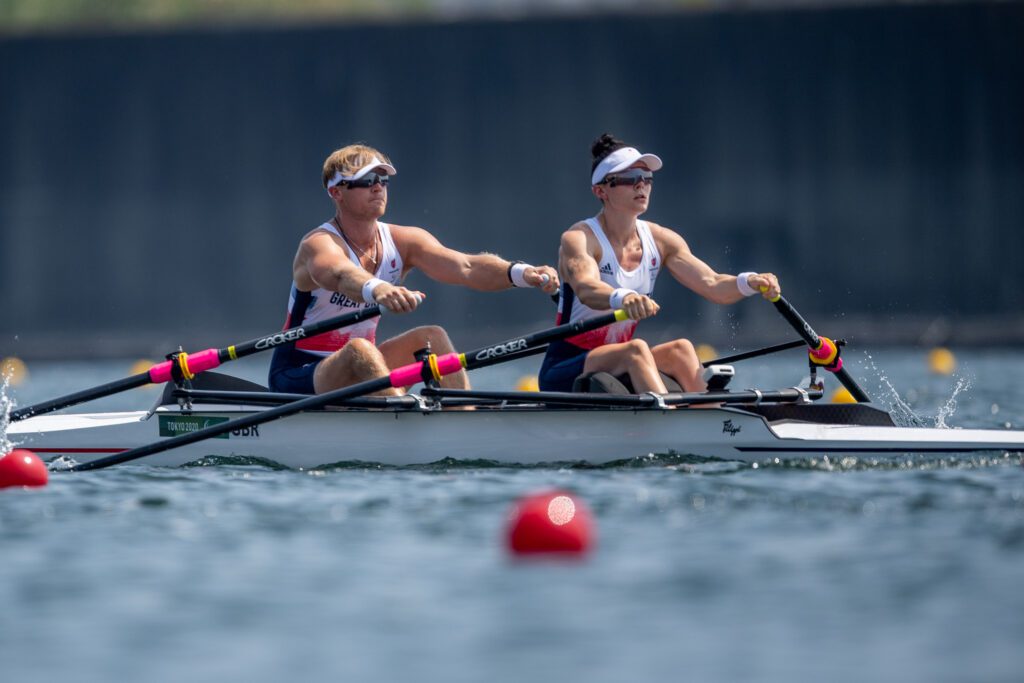
Photo Lauren Rowles and Laurence Whiteley (GBR)
Credit Benedict Tufnell
Lauren Rowles and Laurence Whiteley, who won their PR2 mixed doubles heat in the quickest time of their category, had pulled off their ice vests by the time they got to the mixed zone, since these were only lasting five minutes in the scorching heat of the Japanese capital. Rowing’s on in the mornings, but not especially early: by the time the first of eight races goes off at 9:30am the temperature is already high. Rowles and Whiteley, who have swapped round to put Rowles in the stroke seat since winning the European championships, had no trouble keeping ahead of the Ukraine to book their finals qualifying spot.
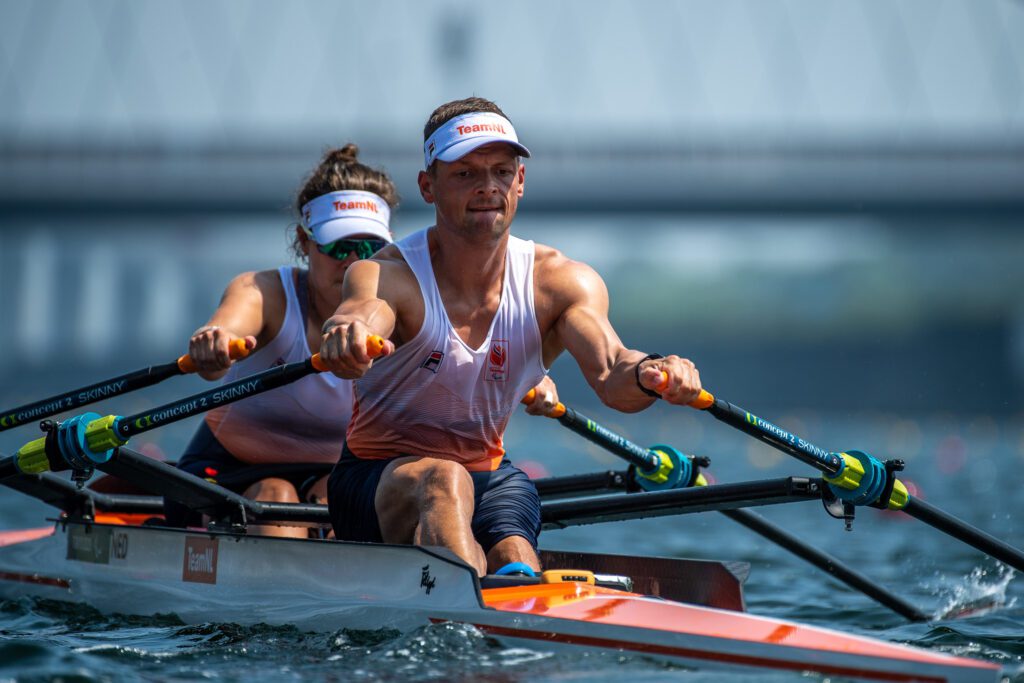
Photo Corne de Konig and Annika van der Meer (NED)
Credit Benedict Tufnell
It was a different matter for their perennial rivals, Corne de Konig and Annika van der Meer of the Netherlands, who were caught out by China’s superb new double, Jiang Jijian and Liu Shuang, in their heat. The Chinese duo, who only came together in 2019, when they finished 7th to claim their spot at Tokyo, have developed considerably during the pandemic, and soared past the Dutch double very early on, moving away steadily across the course.Their winning time was four seconds slower than the Brits, suggesting these two could be close in the final.
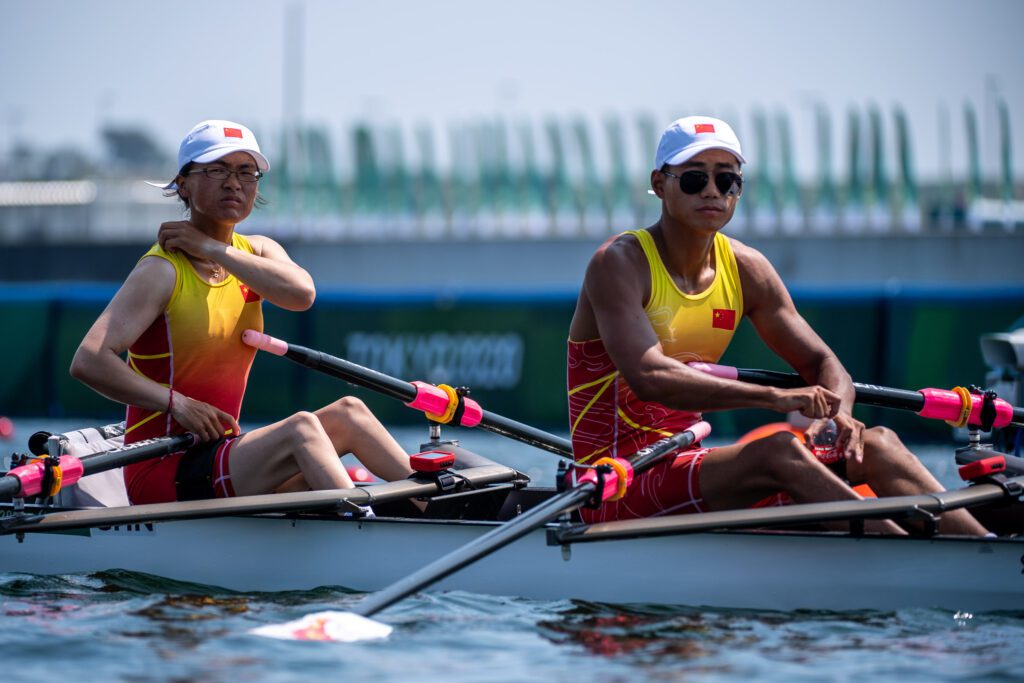
Photo Jiang Jijian and Liu Shuang (CHN)
Credit Benedict Tufnell
The 12-crew format of the tiny Paralympic regatta means that each event has two heats from which only the winners go straight to the final, then on the second day tense repechages in which two of five join the A-final. Day three will see all four sets of medals awarded. As well as the Dutch double, another previous world champion being sent to the repechages was Australia’s PR1 M1x Erik Horrie, who at 41 is the sixteenth-oldest rower at the regatta, and who came a cropper as Rene Campos Pereira of Brazil, a mere nine months younger, steamed past him just before the first timing marker. Campos Pereira has never finished higher than fifth at an all-comers final in his six years in the sport, but has clearly made the most of the pandemic training time and is looking set to claim a medal this year.
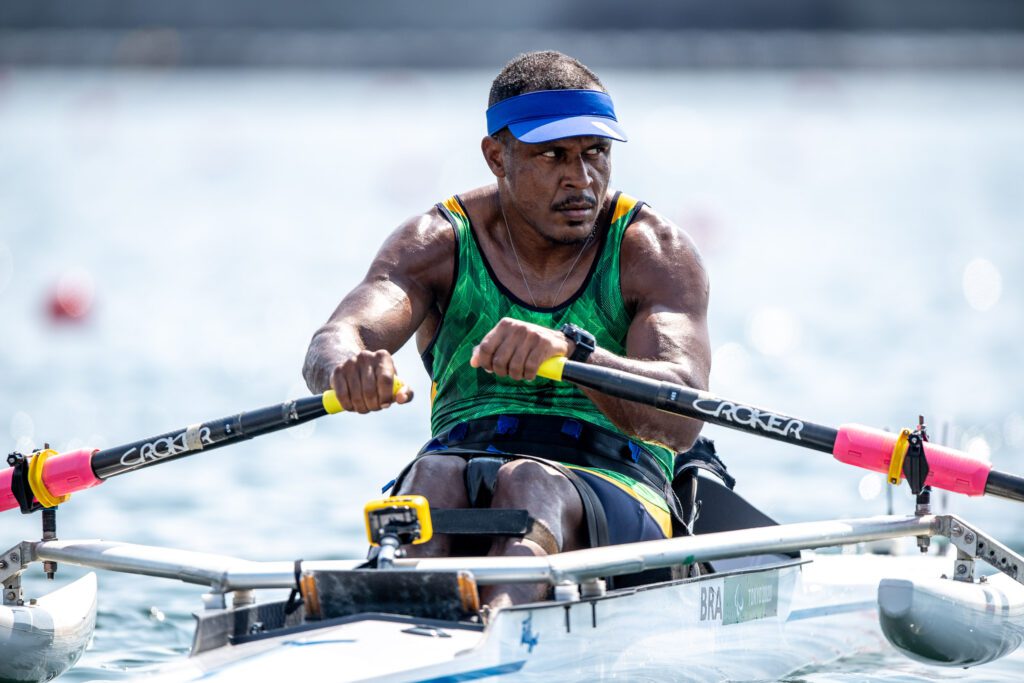
Photo Rene Campos Pereira (BRA)
Credit Benedict Tufnell
The reorganised media mixed zone was graced by Michel Munoz Malagon after racing, the Mexican M1x born with a congenital malformation which stopped his legs from developing, and who buzzes around on a skateboard instead of using a wheelchair. “Why be normal, if you can be extraordinary” is his motto, and he finished sixth behind Pereira, Horrie, Spain’s Javier Reja Munoz and Aleksey Chuvashev, the Russian unable to compete in Rio due to the FISA ban on the Russian rowers.
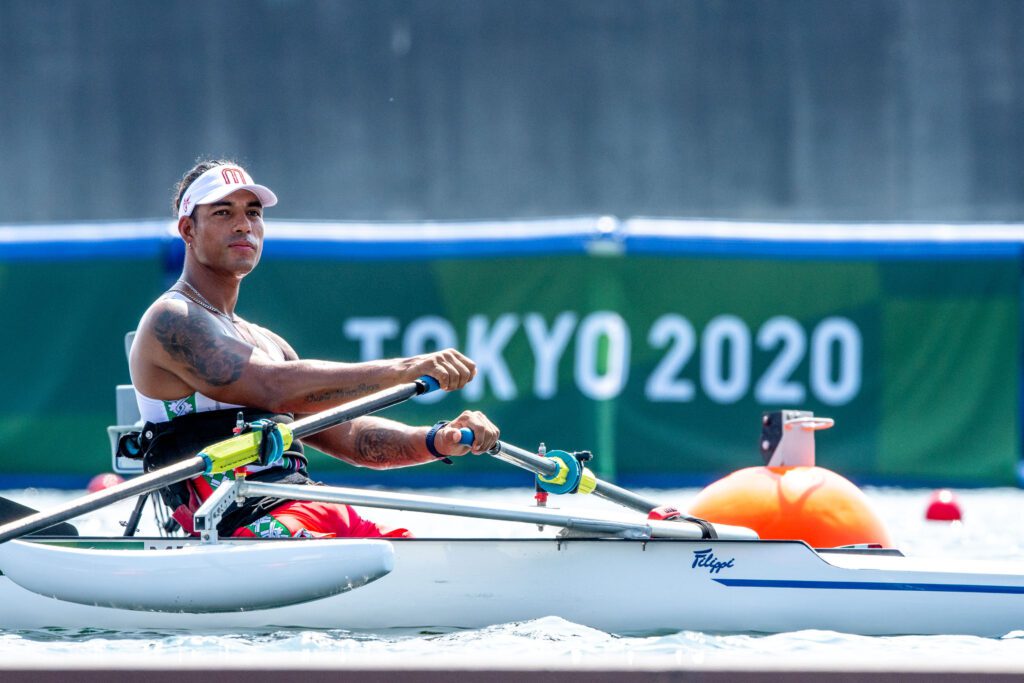
Photo Michel Munoz Malagon: “Why be normal, if you can be extraordinary”
Credit Benedict Tufnell
Chuvashev has been a perennial medallist in this category but looked off the boil finishing fourth in the opening heat, and he was 33 seconds slower than heat 2 runner-up Benjamin Pritchard of GBR.
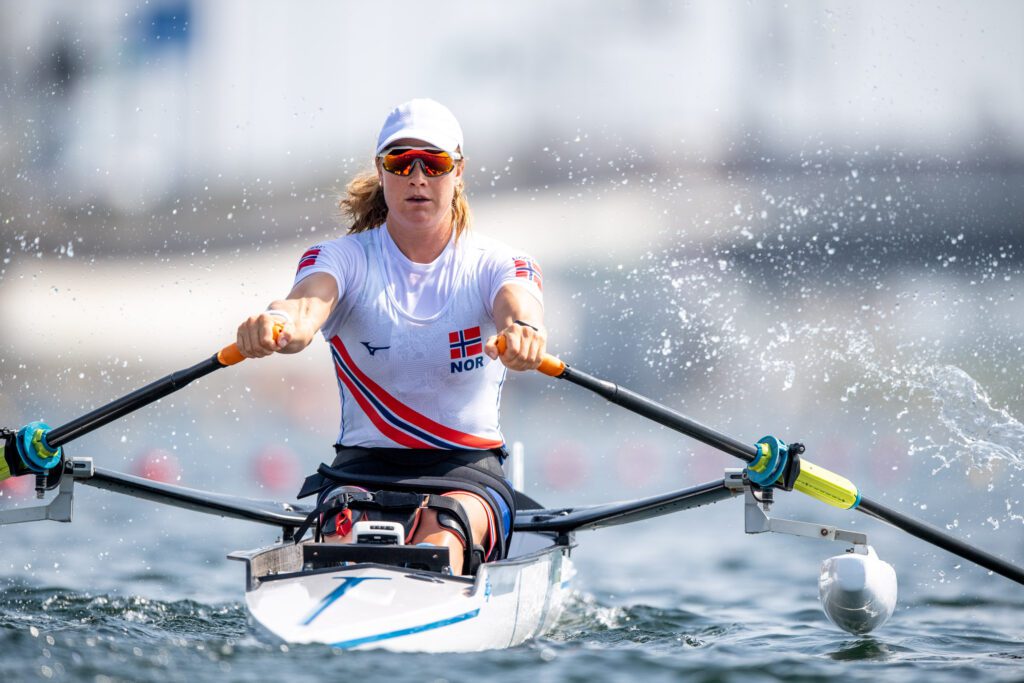
Photo Birgit Skarstein (NOR)
Credit Benedict Tufnell
The women’s singles was another glory row for Norwegian sensation Birgit Skarstein, who has since winning the worlds PR1 W1x in 2019 become the world’s first Dancing with the Stars competitor in a wheelchair. She and her partner also become the first Norwegians on the show ever to earn a perfect score of 40 for the rumba, substituting flips and hanging from ceiling ropes instead of leg-based dance moves. She is also planning to continue her Nordic skiing career at the 2022 Beijing Winter Paralympics in seven months time, but meanwhile has a bit of rowing to take care of. Her first race, in a light head-crosswind at the Sea Forest Waterway, went very smoothly, beating Frenchwoman Nathalie Benoit with ease. However in the second heat Israeli sculler Moran Samuel beat Skarstein’s time — breaking the new 2km Paralympic best mark — and setting down a challenge to Skarstein which we will see answered in Sunday’s final. They were 11 seconds apart in 2019, but it could be closer this time, especially with 2019 Belarussian bronze medallist Lludmila Vauchok finding the going tricky in Tokyo. Skarstein had what looked like an aerodynamic fin mounted on the deck canvas behind her, perhaps to help disrupt the opposing head-wind (or maybe just decorative).
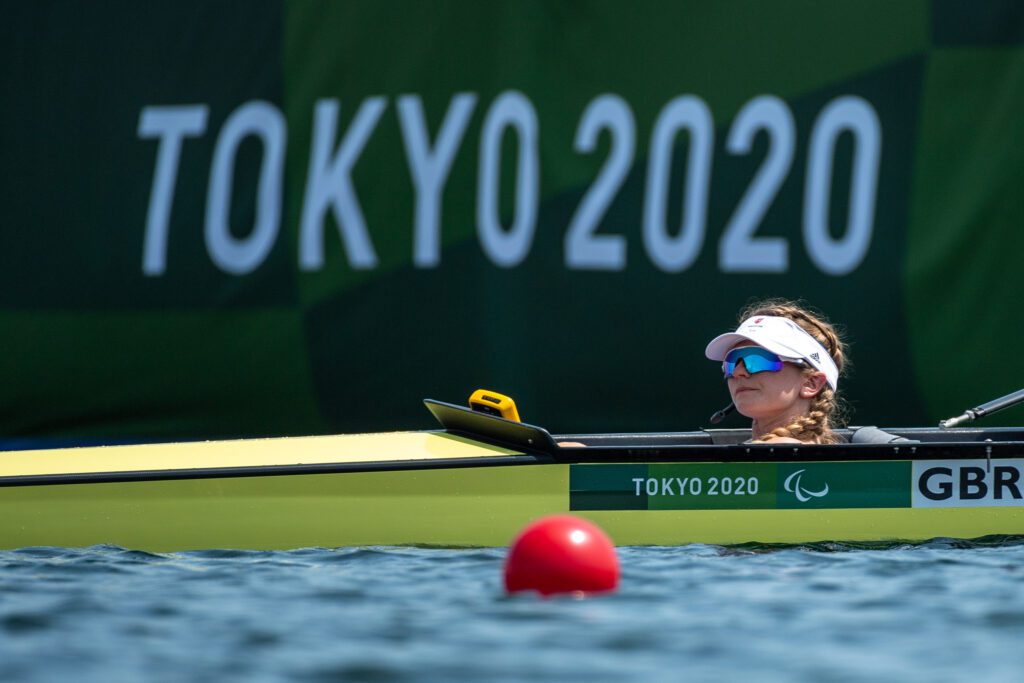
Photo GBR PR3Mix4+
Credit Benedict Tufnell
The para-fours were by far the noisiest races, the TV feed clearly picking up the yells of the coxes echoing around the virtually empty grandstands. US cox Karen Petrik was counting down to the line as her crew won the first PR3 Mx4+ heat by 11 seconds, speeding confidently ahead of Australia and Israel. However, the other qualifiers were Great Britain, who have bossed this event since 2010 when Canada were the last country to beat them to world or Olympic gold. Britain’s quintet broke the USA’s new Paralympic best time by ten seconds, and were 15 ahead of France, despite winding their rate down in the last 500 metres.
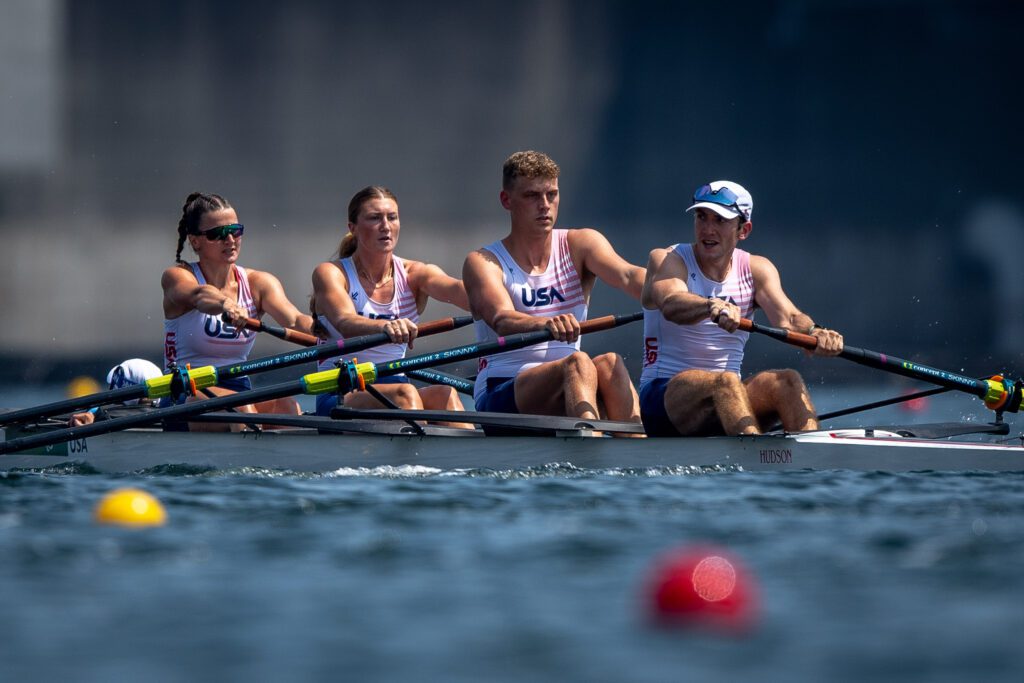
Photo USA PR3Mix4+
Credit Benedict Tufnell
Brutal repechages await on Saturday, for which the weather forecast is a light but more cross wind, starting head-cross but veering to tail-cross near the very end of racing, and equally hot. Get those ice vests in the freezer now.
